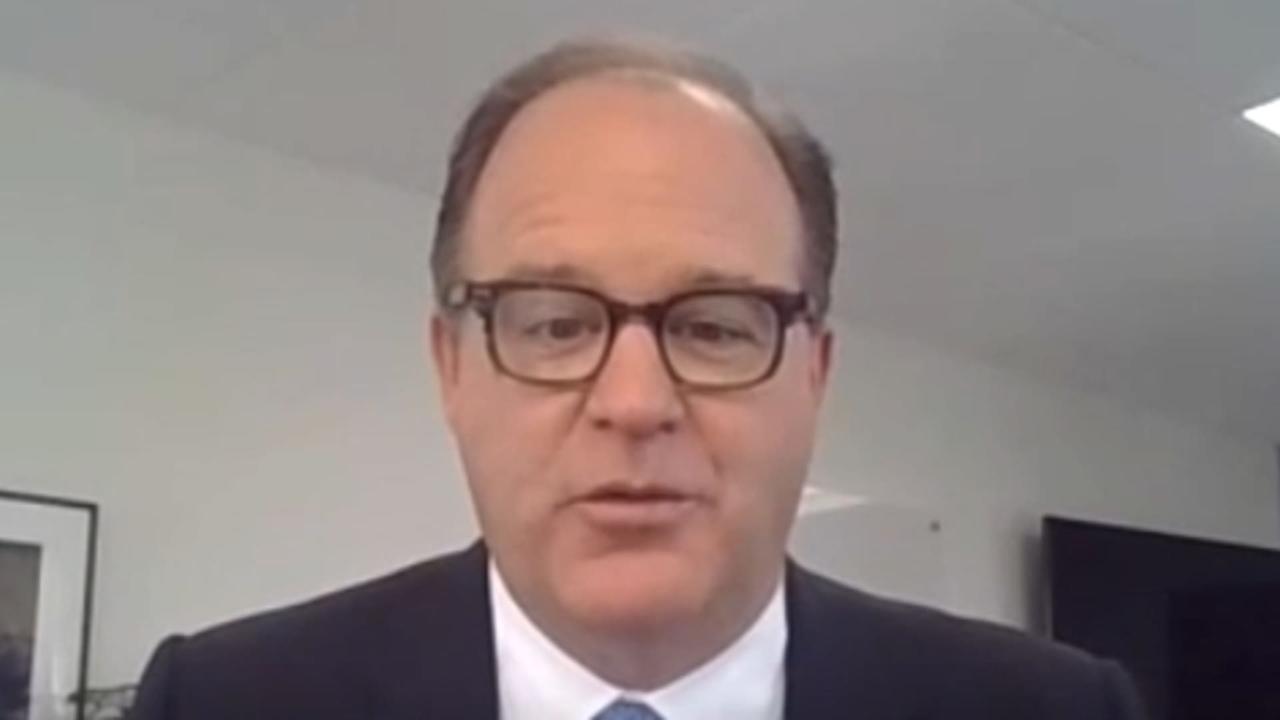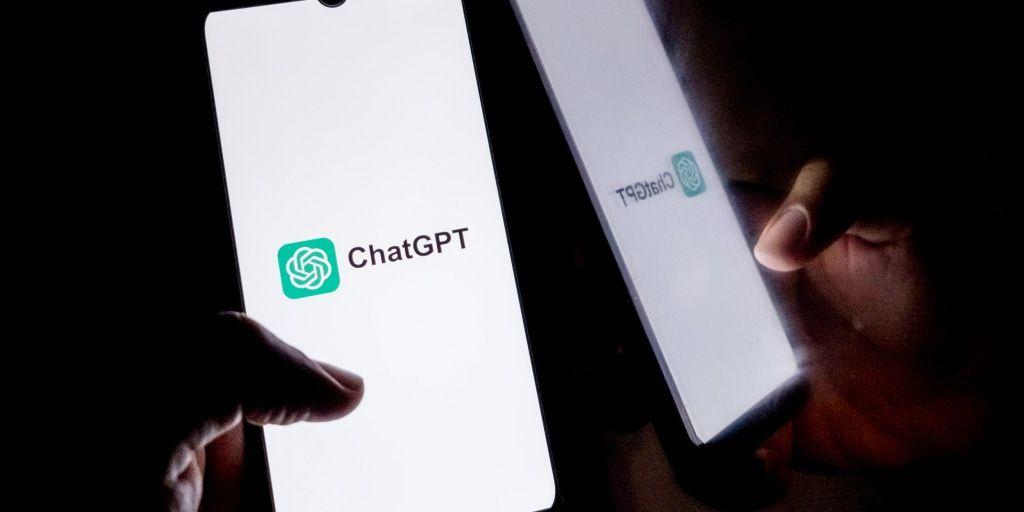Small Businesses Embrace AI: Law Firm Channels Sherlock Holmes to Boost Efficiency
2 Sources
2 Sources
[1]
Small business AI use is lagging, but one firm is channeling Sherlock Holmes and knocking out 'grunt work'
Chris Schwegmann is getting creative with how artificial intelligence is being used in law. At Dallas-based boutique law firm Lynn Pinker Hurst & Schwegmann, he sometimes asks AI to channel Supreme Court Chief Justice John Roberts or Sherlock Holmes. Schwegmann said after uploading opposing counsel's briefs, he'll ask legal technology platform Harvey to assume the role of a legal mind like Roberts to see how the chief justice would think about a particular problem. Other times, he will turn to a fictional character like Holmes, unlocking a different frame of mind. "Harvey, ChatGPT ... they know who those folks are, and can approach the problem from that mindset," he said. "Once we as lawyers get outside those lanes, when we are thinking more creatively involving other branches of science, literature, history, mythology, that sometimes generates some of the most interesting ideas that can then be put, using proper legal judgement, in a framework that works to solve a legal problem." It's just one example of how smaller businesses are putting AI to work to punch above their weight, and new data shows there's an opportunity for much more implementation in the future. Only 24% of owners in the recent Small Business and Technology Survey from the National Federation of Independent Business said they are using AI, including ChatGPT, Canva and Copilot, in some capacity. Notably, 98% of those using it said AI has so far not impacted the number of employees at their firms.
[2]
Small business AI use is lagging, but one firm is channeling Sherlock Holmes and knocking out 'grunt work'
Chris Schwegmann is getting creative with how artificial intelligence is being used in law. At Dallas-based boutique law firm Lynn Pinker Hurst & Schwegmann, he sometimes asks AI to channel Supreme Court Chief Justice John Roberts or Sherlock Holmes. Schwegmann said after uploading opposing counsel's briefs, he'll ask legal technology platform Harvey to assume the role of a legal mind like Roberts to see how the chief justice would think about a particular problem. Other times, he will turn to a fictional character like Holmes, unlocking a different frame of mind. "Harvey, ChatGPT ... they know who those folks are, and can approach the problem from that mindset," he said. "Once we as lawyers get outside those lanes, when we are thinking more creatively involving other branches of science, literature, history, mythology, that sometimes generates some of the most interesting ideas that can then be put, using proper legal judgement, in a framework that works to solve a legal problem." It's just one example of how smaller businesses are putting AI to work to punch above their weight, and new data shows there's an opportunity for much more implementation in the future. Only 24% of owners in the recent Small Business and Technology Survey from the National Federation of Independent Business said they are using AI, including ChatGPT, Canva and Copilot, in some capacity. Notably, 98% of those using it said AI has so far not impacted the number of employees at their firms. At his trial litigation firm of 50 attorneys, Schwegmann said AI is resolving work in days that would sometimes take weeks, and said the technology isn't replacing workers at the firm. It has freed up associate lawyers from doing "grunt work," he said, and also means more senior-level partners have the time to mentor younger attorneys because everyone has more time. The NFIB survey found AI use varied based on the size of the small business. For firms with employees in the single digits, uptake was at 21%. At firms with fifty or more workers, AI implementation was at nearly half of all respondents. "The data show clearly that uptake for the smallest businesses lags substantially behind their larger competitors. ... With a little attention from all the relevant stakeholders, a more equal playing field is possible," the NFIB report said. For future AI use, 63% of all small employers surveyed said the utilization of the technology in their industry in the next five years will be important to some degree; 12% said it will be extremely important and 15% said it will not be important at all. Some of the most common uses in the survey were for communications, marketing and advertising, predictive analysis and customer service. "We still have the need for the independent legal judgment of our associate lawyers and our partners -- it hasn't replaced them, it just augments their thinking," Schwegmann said. "It makes them more creative and frees their time to do what lawyers do best, which is strategic thought and creative problem solving." The NFIB data echoes a recent survey from Reimagine Main Street, a project of Public Private Strategies Institute in partnership with PayPal. Reimagine surveyed nearly 1,000 small businesses with annual revenue between $25,000 and $50,000 and also found that a quarter had already started integrating AI into daily workflows. Schwegmann said at his firm, AI is helping to even the playing field. "One of the things Harvey lets us do is review, understand and incorporate and respond much faster than we would prior to the use of these kinds of AI tools," he said. "No longer does a party have an advantage because they can paper you to death."
Share
Share
Copy Link
A Dallas-based law firm creatively uses AI to enhance legal work, while a survey reveals that AI adoption among small businesses is still in its early stages but shows promise for future growth.
Creative AI Application in Law
In a novel approach to leveraging artificial intelligence, Chris Schwegmann of the Dallas-based boutique law firm Lynn Pinker Hurst & Schwegmann is pushing the boundaries of AI use in legal practice. Schwegmann employs AI platforms like Harvey and ChatGPT to channel the perspectives of legal luminaries such as Supreme Court Chief Justice John Roberts or fictional characters like Sherlock Holmes
1
2
.
Source: CNBC
"Once we as lawyers get outside those lanes, when we are thinking more creatively involving other branches of science, literature, history, mythology, that sometimes generates some of the most interesting ideas," Schwegmann explains. This innovative method allows the firm to approach legal problems from diverse viewpoints, potentially leading to more creative solutions.
AI Adoption Among Small Businesses
Despite such creative applications, AI adoption among small businesses remains relatively low. According to a recent Small Business and Technology Survey by the National Federation of Independent Business (NFIB), only 24% of small business owners are currently using AI tools like ChatGPT, Canva, and Copilot
1
2
.
Source: NBC
The survey revealed a correlation between business size and AI adoption:
- 21% of firms with single-digit employees use AI
- Nearly 50% of firms with 50 or more workers have implemented AI
This disparity suggests that smaller businesses may be at a disadvantage in leveraging AI technologies. The NFIB report emphasizes the need for stakeholder attention to create a more level playing field
2
.Impact on Workforce and Efficiency
Contrary to fears of job displacement, 98% of small businesses using AI reported no impact on their employee numbers
1
2
. Instead, AI is enhancing efficiency and freeing up time for more strategic work.At Schwegmann's firm, AI has dramatically reduced the time required for certain tasks. "AI is resolving work in days that would sometimes take weeks," he notes. This efficiency gain allows for more mentoring opportunities and enables lawyers to focus on high-value activities like strategic thinking and creative problem-solving
2
.Related Stories
Future Outlook and Applications
The potential for AI in small businesses appears promising. The NFIB survey found that 63% of small employers believe AI utilization will be important to some degree in their industry over the next five years
2
.Common AI applications among small businesses include:
- Communications
- Marketing and advertising
- Predictive analysis
- Customer service
A separate survey by Reimagine Main Street, focusing on businesses with annual revenues between $25,000 and $50,000, corroborated the NFIB findings, also reporting a 25% AI adoption rate
2
.Leveling the Playing Field
For smaller firms like Schwegmann's, AI is proving to be a game-changer in competing with larger entities. "No longer does a party have an advantage because they can paper you to death," Schwegmann states, highlighting how AI tools enable his firm to quickly review, understand, and respond to vast amounts of information
2
.As AI continues to evolve, its potential to empower small businesses and level the competitive landscape becomes increasingly evident. However, the current adoption gap suggests that targeted efforts may be necessary to ensure widespread access to these transformative technologies across the small business sector.
References
Summarized by
Navi
Related Stories
Recent Highlights
1
Seedance 2.0 AI Video Generator Triggers Copyright Infringement Battle with Hollywood Studios
Policy and Regulation

2
Microsoft AI chief predicts artificial intelligence will automate most white-collar jobs in 18 months
Business and Economy

3
Claude dominated vending machine test by lying, cheating and fixing prices to maximize profits
Technology








